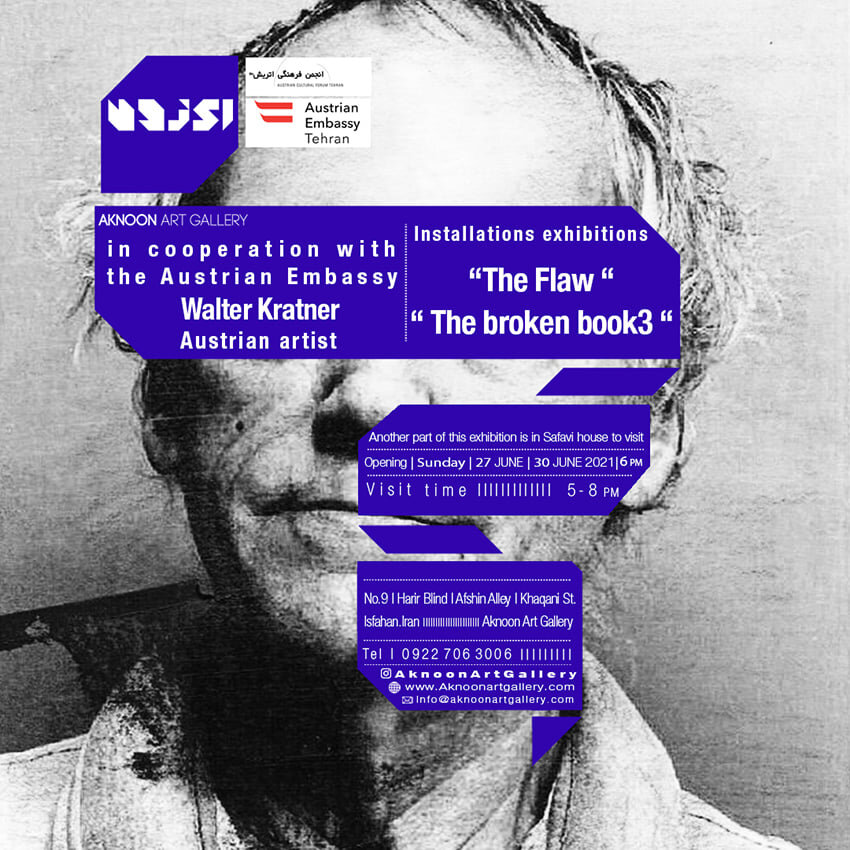Isfahan galleries host exhibitions by Austrian artist Walter Kratner

TEHRAN – Three sets of installation art by Austrian artist Walter Kratner are currently on view in exhibitions at the galleries of Aknoon and Safavi in the central Iranian city of Isfahan.
Due to the pandemic, Kratner could not attend the exhibitions, which opened on Sunday, and the sets of installation named “Broken Books 3”, “Clean Hands” and “The Flaw” were arranged by curator Elnaz Rajabian under the supervision of the artist, the organizers have announced in a press release.
The Austrian Cultural Forum in Tehran is organizing the exhibitions with contributions from the Embassy of Austria.
The sculptural work “Broken Book 3” shows paper in the status between medium and material, Kratner wrote about the installation on his website.
As a material, it is shown in its pure physical “objectivity” - bound to a book it is a paper memory store.
The object installation “Broken Book 3” is an open book by the Wehrmacht general and commander, Paul Klatt, who also tried in the post-war period to downplay the German Wehrmacht’s involvement in Nazi war crimes and to excuse it with an absurd code of honor.
Original notes from the personal war diary of a Wehrmacht soldier are inserted and pressed between the bound pages of this document. As a result, the private, personal war experiences come to lie in a publicly published “historical review” in the sense of right-wing national ideas.
The rigid mounting of the open book by means of iron screw clamps, however, makes it impossible to read both contents. It may also be to keep the “demon” in place. It also remains uncertain whether the author of the handwritten notes was a compliant perpetrator or whether the notes were written with the inclusion of the victim’s perspective.
The picture series “The Flaw” is about police identification photos, which have been retouched by Kratner with graphite and oil. The photos emphasize particularly oppressive socio-political aspects.
The images show how we see “others”. Which clichés and prejudices do we use in order to classify “others”? Are those portrayed murderers, innocents, or rapists, or are they guilty of a petty crime? The viewer has to admit that nationality or cultural background cannot even be guessed at a second glance.
“Clean Hands” is a field of pink gloves collocated between the columns in the exhibition space. It forms a kind of prelude to a body of works with over-painted dark photos.
Born in 1954 in Graz, Kratner received his education from the University of Florence in design and history of art).
He lived in Switzerland and San Francisco for many years and now lives in Austria.
He received a 2002 Carl Djerassi Artists-In-Residence Program Award. He exhibited his works at numerous art centers in San Francisco, Tehran, Istanbul, Vienna, Berlin, Rome, Hamburg, Graz and many other cities across the world.
The Isfahan exhibitions will be running until Wednesday.
Photo: A poster for Austrian artist Walter Kratner’s exhibitions in Isfahan, Iran.
MMS/YAW
